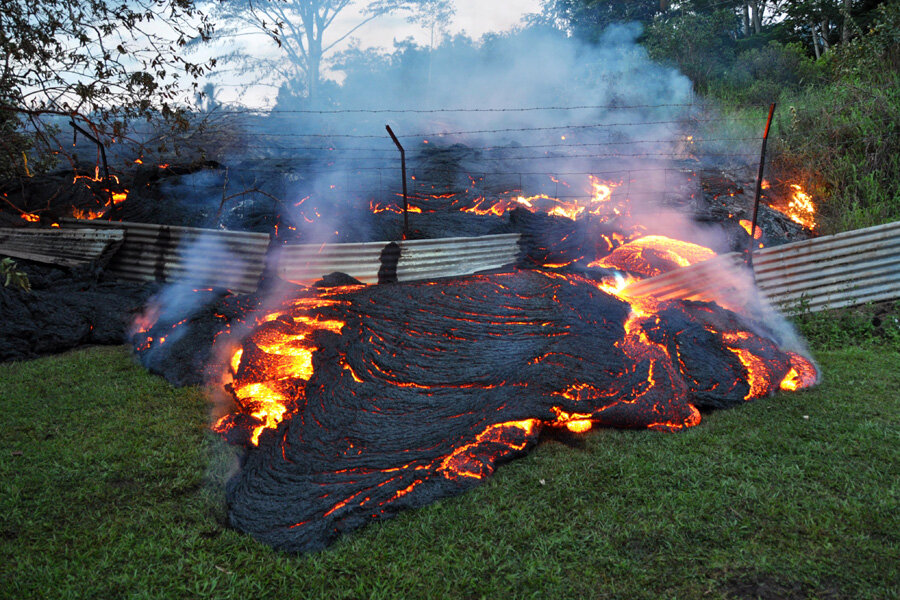National Guard called out in Hawaii for lava flow
Loading...
| Pahoa, Hawaii
The National Guard is deploying troops to a rural Hawaii town as lava makes a slow crawl toward a major road and threatens to further isolate the community that got its start during the lumber- and sugar-plantation heydey.
Hawaii County Civil Defense Director Darryl Oliveira said Thursday the National Guard is deploying 83 troops to Pahoa to help provide security. The troops will help with a roadblock and with other safety issues.
Lava from a vent at Kilauea volcano has been sliding northeast toward the ocean since June. Last month, scientists said it was two weeks away from hitting the main road in Pahoa, a small town of about 950 residents. The lava slowed but has largely remained on course.
People in the small town lying in its path say the lava will reshape the community yard by yard as it slides toward the ocean.
"She is so gentle, but so unrelenting. She is just slow and steady," said Jamila Dandini, a retiree who stopped at a coffee shop down the road from where scientists have forecast the lava will likely cross. Like many others, she refers to the lava as Pele, the Hawaiian volcano goddess.
So far the lava has burned a shed and a lot of vegetation. A finger of lava that branched off the flow's leading edge remained 100 feet from a house Thursday morning.
It was traveling about 5 to 10 yards an hour.
The languid pace has given residents time to pack their valuables and get out of the way. But it's been agonizing for those wondering whether the lava might change directions and head for them and stressful for those trying to figure out how they will cope once the lava blocks the town's only roads.
"It's like slow torture. It speeds up, it slows down. It speeds up, it slows down," said Paul Utes, who owns the Black Rock Cafe.
Utes' restaurant is just a few hundred yards south of where the lava will likely cross the main road. Even if the cafe is spared, he doesn't know how traffic will be diverted once the flow crosses the road, how his vendors will supply his restaurant and what his customers will do.
For the time being, business is up because more locals and tourists have been streaming into town hoping to get a glimpse of the molten rock.
Once the lava crosses the main road and the bypass road, effectively slicing Pahoa in half, most residents won't be able to get to the area's only supermarket, though it's just a mile from the town center.
Puna will be cut off even more if the lava makes it all the way to the ocean, some 6 miles away.
Some businesses are closing or moving, while others are vowing to stay.





